Plus, the best next steps to take after a positive pregnancy test

Suspect you’re pregnant? There are no shortage of signs and symptoms that supposedly signify this to be true, whether it’s a more prominent pulse in your neck or a bizarre food craving.
Advertisement
Cleveland Clinic is a non-profit academic medical center. Advertising on our site helps support our mission. We do not endorse non-Cleveland Clinic products or services. Policy
However, before you start Googling symptoms or going on an anxiety-filled pregnancy watch, read on — Ob/Gyn Stacie Jhaveri, MD, offers insight into signs you’re pregnant and next steps to take if that pregnancy test is indeed positive.
Dr. Jhaveri says there are five common early signs that you’re pregnant:
Generally, pregnancy symptoms start after successful implantation of a fertilized egg into your uterus, which occurs roughly eight to 10 days after ovulation. “Once a fertilized egg is implanted, then you’re going to have persistent pregnancy hormones,” says Dr. Jhaveri. “That’s when symptoms usually start.”
Where it gets tricky is that some early pregnancy signs can resemble a period. For example, after implantation, you can get what’s known as implantation bleeding, which looks like spotting or a light period.
Other early pregnancy signs, including breast tenderness or swollen breasts, can resemble the symptoms of PMS (premenstrual syndrome). That’s due to hormonal changes. “The hormones that get released after ovulation, when your body thinks you might be pregnant, are very similar to the ones that continue after you are pregnant,” says Dr. Jhaveri.
Advertisement
In addition, there are several other signs and symptoms that you might be pregnant.
Food aversions — where you can’t stand to taste, smell or even look at certain foods — are common, as are food cravings. Both of these things manifest with no rhyme or reason, says Dr. Jhaveri. “There’s no association with what your body actually needs in pregnancy, which is what’s so unusual,” she explains. “Some people crave fatty foods. Some people crave salty foods. Some people can’t eat meat. Some can’t smell meat. They’re just random.”
Having a metallic taste in your mouth is quite common, due to illness, medications or even food allergies. However, pregnancy can also cause this condition.
Your cervical mucus (which you expel as part of vaginal discharge) can get thinner or thicker depending on where you are in your menstrual cycle. These changes in consistency can help you gauge fertility and pregnancy status. “It’s a thin and watery discharge before you ovulate,” says Dr. Jhaveri. “Then it becomes thicker after you ovulate — and then it gets even thicker if you’re pregnant. It just stays that way.”
Dr. Jhaveri stresses that this is completely normal and not something to worry about. “People say to me, ‘Why am I having this discharge? I must have an infection. I’m worried about the baby.’ But, no — it’s normal to have increased discharge.”
Your progesterone levels rise (and, as a result, so does your basal body temperature) after ovulation and when you’re pregnant. “If you ovulate, your temperature will go up,” Dr. Jhaveri says. “But if you’re pregnant, it will stay up. You may say, ‘I just feel warm all the time.’ We tend to get more people in the summer who think they’re pregnant.”
Although many pregnant people report having an increased gag reflex, Dr. Jhaveri sees this as related to changes to your gastrointestinal system. “I think a gag reflex is more of a sign of underlying nausea and gastrointestinal slowing,” she says. “Everyone has more constipation because of hormones, and they have more reflux.”
When you’re pregnant, bleeding and pain are two symptoms to keep an eye on.
“Spotting is normal,” says Dr. Jhaveri. “We know that 25% to 40% of people will have spotting in early pregnancy, like in the first four to six weeks.” However, bleeding is entirely different. Bleeding could be a sign of a miscarriage or an ectopic pregnancy, an extremely dangerous condition where the fertilized egg implants outside of the uterus.
Pain can also be a sign of an ectopic pregnancy. “It’s normal to have cramping as soon as you implant, and it’s normal to have cramping from being pre-menstrual as well,” says Dr. Jhaveri. “And cramping for the first four or five weeks of pregnancy is completely normal.”
Advertisement
“If you’re like, ‘Well, I woke up, and I felt this twinge,’ that’s not what we mean. Severe pain is what we’re looking for. Something that would interfere with your daily functioning and last longer than 30 seconds. If you have any questions about pain, call your doctor so you can discuss whether you need an evaluation.”
If you’ve missed a period and are feeling any of the early pregnancy symptoms mentioned, it might be time to get tested. Home pregnancy tests can confirm a pregnancy within days of implantation, although Dr. Jhaveri recommends waiting until you miss a period before taking one.
Take a deep breath! “Whether the pregnancy is desired and planned, or if it’s completely unexpected, it’s really common to get that positive test and feel a huge wave of anxiety,” says Dr. Jhaveri. “The whole process is new. There’s the thought you’re creating a new life and are responsible for it — all of that’s incredibly daunting.”
After the test, call your doctor and schedule a visit. However, don’t think you’ll need to get an appointment that very day — or even the next day. Usually, the first visit is between seven to nine weeks from your last menstrual period. “You don’t have to be seen right away,” says Dr. Jhaveri. “It’s okay to process those emotions, take a deep breath and know that you’ve done the right thing by calling.”
Advertisement
While you are waiting for your first prenatal visit, there are things you can do to start preparing for your pregnancy.
Ideally, you’ve already been taking a daily multivitamin, even before conception. However, make sure your vitamin of choice has folic acid. If it doesn’t, start taking a folic acid supplement. A prenatal vitamin or multivitamin with folate can help prevent birth defects of the brain, spine or spinal cord.
Assess what lifestyle habits you need to change to be healthier for your growing baby. “If you’re a smoker, you want to work on smoking cessation,” says Dr. Jhaveri. “Stop any alcohol intake, and limit your caffeine. We recommend less than 200 mg a day.”
Sure, when you’re pregnant, you won’t have a perfect diet, and you’ll probably splurge on ice cream or other treats. However, choosing what to eat during pregnancy is all about being sensible.
“It’s not the time to say, ‘Yeah, I’m eating for two. Yeah, I can eat whatever I want’,” Dr. Jhaveri says. “But you can say, ‘You know what? I know I’ve never eaten that great. But now I’m eating for my baby, and I need to do it right.’ Recognize what you need to eat and how you need to eat — and then avoid certain foods.”
Advertisement
When you are able to see your doctor, come prepared to ask questions and share important information. For example, be sure to discuss what medications you’re taking. “You want to identify if you’re taking anything that can be adjusted,” says Dr. Jhaveri. In addition, you may need to discuss any chronic health conditions you have, such as diabetes, and make sure treatment for these is going well.
Learn more about our editorial process.
Advertisement
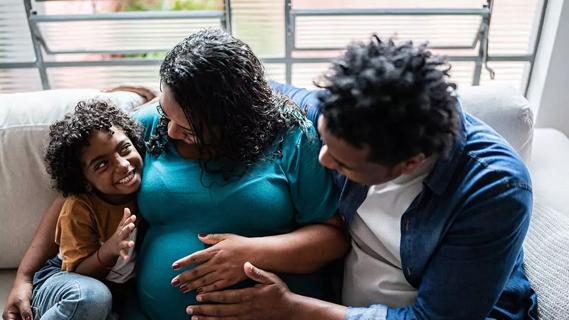
Talk with them about their new sibling early and often
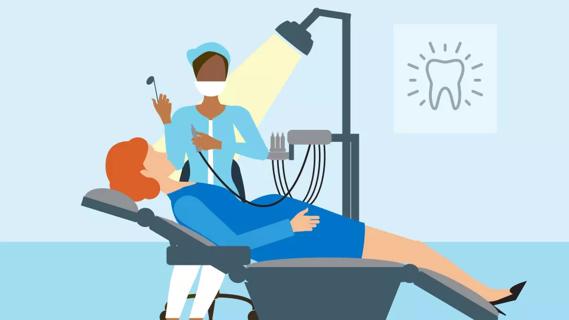
Dental care is not only safe during pregnancy, but it’s also highly recommended
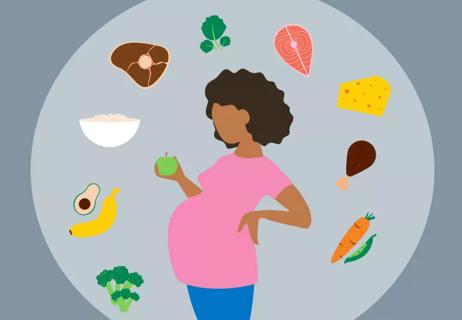
A healthy pregnancy diet includes good amounts of folic acid, DHA, calcium and more
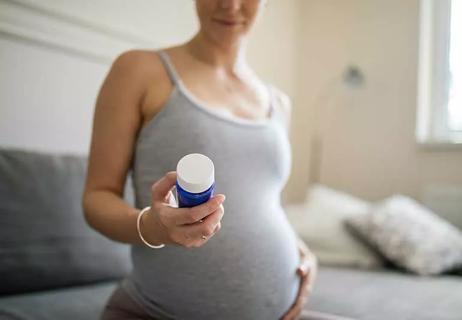
Always talk with your doctor for advice, too

Healthcare providers recommend waiting until week 13 to dye your hair, just to be safe
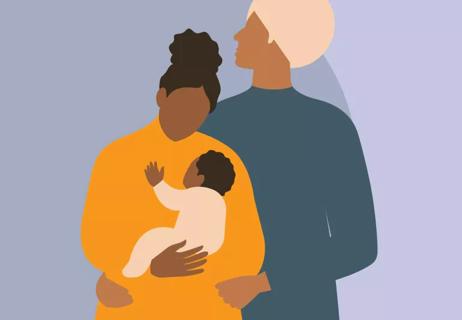
There’s only one proven way to stack the deck in favor of a boy or a girl
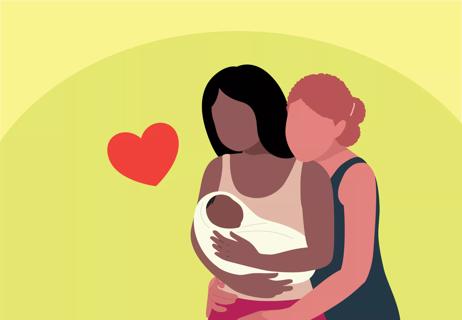
Having a baby after a loss can bring unexpected emotions

Your second-trimester is usually the best time to travel

Type 2 diabetes isn’t inevitable with these dietary changes

Applying a hot or cold compress can help with pain